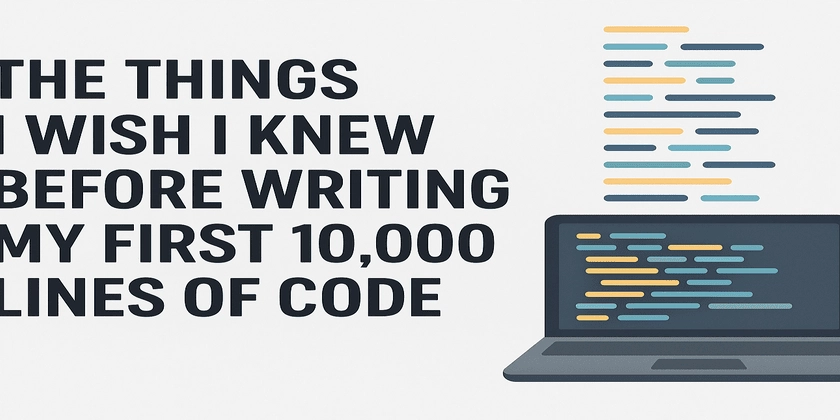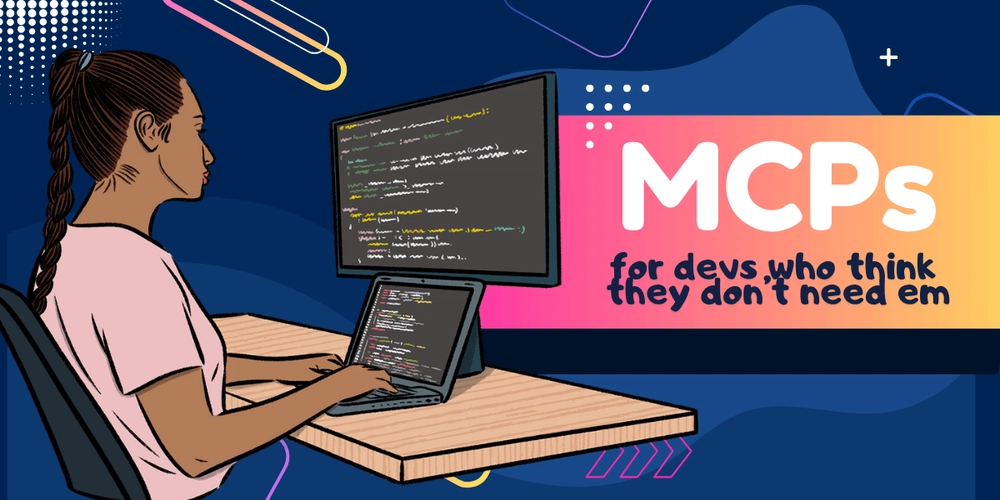Every developer remembers their early days — messy projects, endless debugging, and that magical feeling when things finally work.
Looking back, I realize that my first 10,000 lines of code were filled with mistakes, shortcuts, and “aha” moments. If I could travel back in time, these are the lessons I would tell my beginner self (and maybe save a few all-nighters).
1. Writing Code ≠ Writing Good Code
At first, I thought being a “real developer” meant writing lots of code.
But good code isn’t about quantity. It’s about clarity, maintainability, and simplicity.
- Fewer lines that are easy to read > Many lines that nobody understands
- Code is read 10x more often than it’s written
- “Future you” is your most frequent collaborator — write for them
✨ Rule of thumb: If I can’t explain my code to a beginner, it’s too complex.
2. Don’t Fear Deleting Code
In my early days, I treated every line like a precious gem. Deleting code felt like throwing away progress.
Reality check: bad code is debt.
- Refactoring is growth, not failure
- Deleting 100 lines often feels more productive than adding 1,000
- Cleaner code makes debugging faster
Sometimes the bravest thing you can do is hit that delete key.
3. Debugging Is a Skill, Not a Punishment
I used to panic when my code didn’t work. Hours wasted, frustration building.
Then I realized debugging is a core skill, not a side quest.
- Always read error messages (they are your friends)
- Use print statements or breakpoints strategically
- Narrow down problems step by step — don’t guess
Once I embraced debugging, it stopped being a nightmare and started being a superpower.
4. Comments Don’t Fix Bad Code
I thought writing a ton of comments made my code “professional.”
Wrong.
- Good code explains itself
- Comments are for why, not what
- Outdated comments are worse than none
Instead of writing
// Looping through the array
for (let i = 0; i < arr.length; i++) {
// do something with arr[i]
}
Write self-explanatory code
for (const user of users) {
// do something with user
}
5. Learn Git Early (Seriously)
One of my biggest regrets: waiting too long to learn Git.
Copying files like project-final-v3-FINAL-final2.js is not version control.
- Git saves you from disasters
- You’ll need it in every job
- It teaches you how to collaborate like a pro
Even if you’re working solo, Git is worth it.
6. Don’t Chase Every New Framework
Shiny new tools pop up daily. Early me tried to learn everything — and ended up mastering nothing.
It’s better to know one stack deeply than 10 frameworks poorly.
Focus on the fundamentals:
- Problem-solving
- Data structures & algorithms
- Clean code principles
Frameworks change. Fundamentals last.
7. Asking for Help Isn’t Weakness
For the longest time, I struggled in silence. I thought asking questions made me “less of a developer.”
Turns out, the best developers ask a lot of questions.
- Google is a skill
- Stack Overflow is a tool, not a crutch
- Seniors respect curiosity, not silence
The real weakness? Staying stuck for days on something you could solve in 10 minutes with help.
8. Done Is Better Than Perfect
I wasted months trying to build the perfect project. Spoiler: I never finished it.
A working imperfect project is 100x more valuable than a “perfect” project sitting in your drafts.
- Ship fast, iterate later
- Progress beats perfection
- Your future self will always cringe at old code anyway — and that’s a good sign
9. Programming Is More About People Than Computers
This one hit me late: writing code is the easy part.
The real challenge? Communicating with humans.
- Code is for humans first, computers second
- Writing documentation matters
- Teamwork is the real skill behind successful projects
Good code gets you hired. Good collaboration keeps you hired.
10. The Journey Never Ends
After my first 10,000 lines, I thought I would “arrive” as a developer.
Spoiler: there is no finish line.
- Tech evolves constantly
- You’ll always be learning
- That’s what makes it exciting 🚀
Instead of chasing an end goal, I now focus on enjoying the process.
If you’re early in your coding journey:
- Make mistakes
- Break things
- Keep learning
Your first 10,000 lines will probably be messy — and that’s exactly how it should be.
The real growth comes not from writing code, but from rewriting yourself as a developer.
💬 What about you?
What’s the biggest lesson you learned from your first 10,000 lines of code?
Let’s share and help the next generation of developers.



